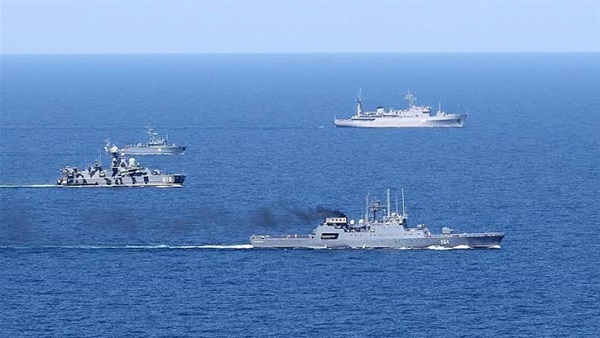Russian warships shell Mariupol from Sea of Azov

Russian warships have started to shell Mariupol from the Sea of Azov, opening a new front against the besieged Ukrainian port where 100,000 people face disease, starvation and bombardment amid the ruins.
Russian ground forces were also reported to have fought their way towards the centre of the city, which Human Rights Watch described as a “freezing hellscape littered with dead bodies”.
This morning’s key developments:
• President Zelensky said Russian forces took rescue workers and bus drivers captive after blocking an agreed humanitarian convoy route to Mariupol.
• Dmitry Peskov, Putin’s spokesman, refused to rule out using nuclear weapons if Russia faced an “existential threat”.
• Russian forces have destroyed a new radioactive waste management laboratory at the Chernobyl nuclear power plant, Kyiv said.
• Elon Musk’s Space X said it has sent “thousands” of Starlink dishes to Ukraine to boost internet access.
Zelensky said that 100,000 trapped people in Mariupol were suffering under “a complete blockade. No food, no water, no medicine. Under constant shelling, under constant bombing”.
On other fronts, a Pentagon official confirmed reports from the British and Ukrainian military that the invasion had largely stalled, bogged down by low conscript morale, poor planning and supply blockages.
President Biden is to fly out of Washington for a series of meetings intended to bolster the anti-Moscow alliance in the face of Europe’s most serious security crisis in decades. He will announce new sanctions on Russian politicians and stricter implementation of existing penalties, officials said.
Biden will attend Nato and European Council summits and meet G7 leaders before travelling to Warsaw. He is expected to unveil plans to deploy further troop and hardware reinforcements to frontline states on Nato’s eastern flank.
Biden will hear a request for military support first-hand from Andrzej Duda, the Polish president, and be shown the scale of the humanitarian crisis in a country that has taken in two million refugees from its neighbour.
He is expected to hear calls in Poland for a western peacekeeping mission to intervene in Ukraine. The US and several other leading Nato allies have made clear that they do not support such a mission, or the imposition of a no-fly zone over Ukraine, as they fear such moves could escalate into open conflict with Russian forces.
Zelensky will join the Nato meeting via video call. “Three important summits are scheduled this week: G7, Nato and the EU,” he said in advance. “New packages of sanctions, new support.” He will tell Nato, however, that his forces desperately need new weapons and supplies to maintain their recent momentum.
Biden’s agenda also includes plans for a new joint initiative to provide alternative energy supplies for Europe and reduce the continent’s heavy dependence on Russian gas, according to Jake Sullivan, his national security adviser.
In an assessment of the war, a Pentagon official said that Russia has failed in its mission to occupy Ukraine’s large cities while its combat power has already been reduced to below 90 per cent of pre-invasion levels in less than a month of fighting.
As well as forcing Russian troops out of Makariv, a crucial gateway suburb west of Kyiv, Ukrainian army units and volunteers have also launched a counter-offensive in southern regions.
Dmitry Peskov, a close Putin aide, insisted in a CNN interview that Moscow’s military operation was proceeding “strictly in accordance with the plans and purposes that were established beforehand”.
He repeated that the Kremlin’s main goals were to “get rid of the military potential of Ukraine” and “ensure that Ukraine changes from an anti-Russian centre to a neutral country”.
Antonio Guterres, the UN secretary-general, has urged Russia to end an “absurd” war that he denounced as “morally unacceptable, politically indefensible and militarily nonsensical”.





